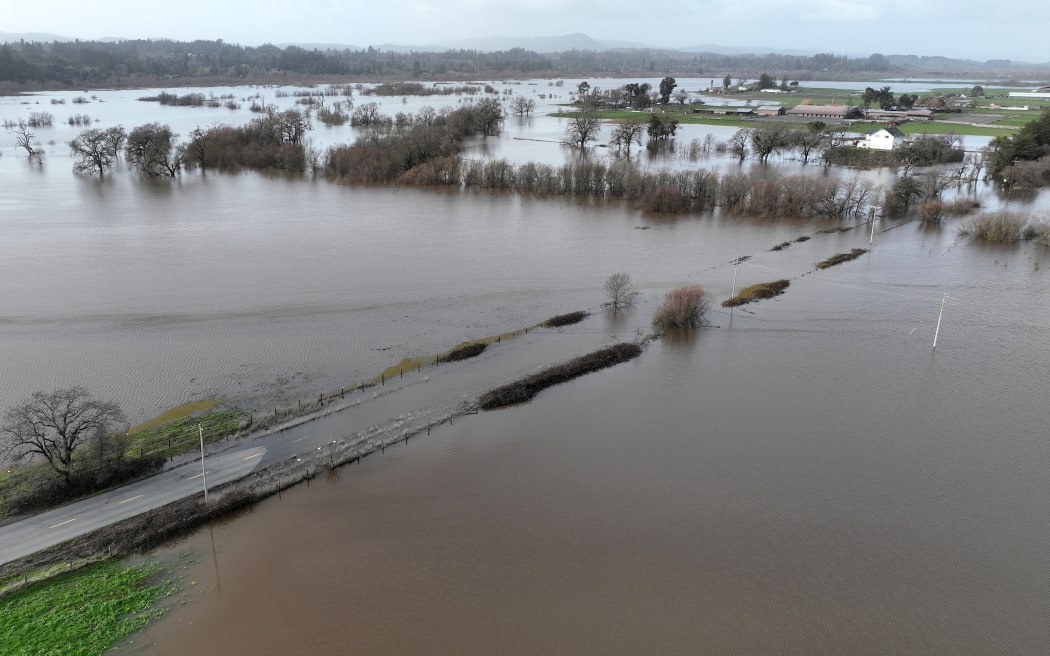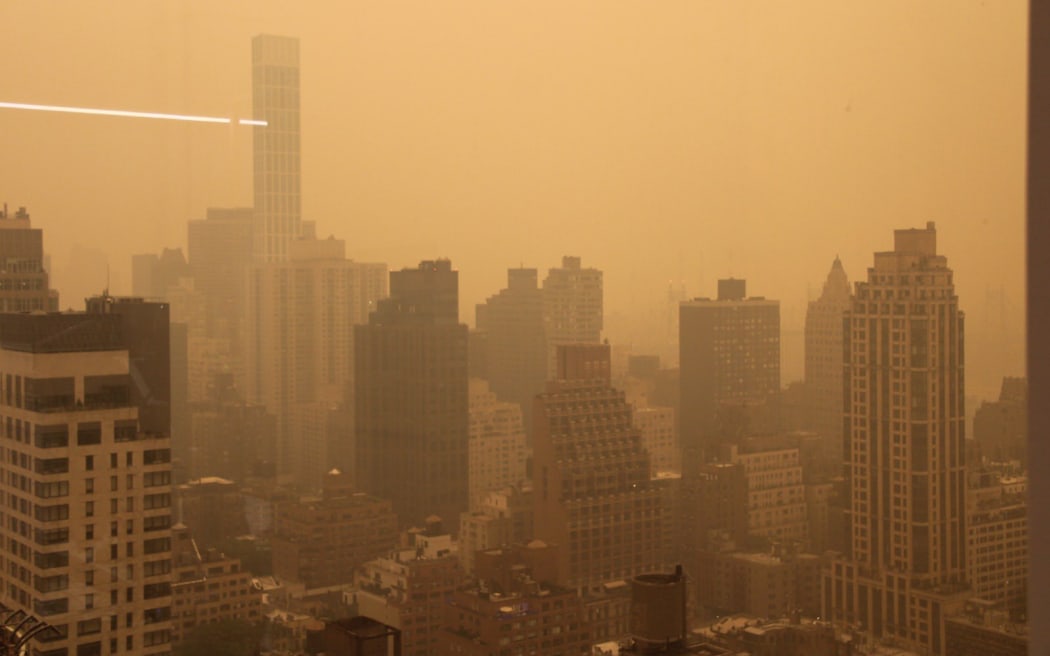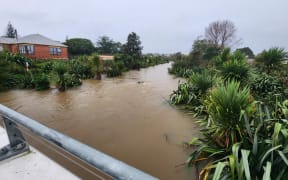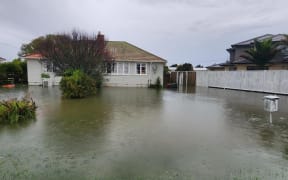By Tyne Logan, ABC weather reporter

An aerial view of flooding in Santa Rosa, California on 9 January 2023. Photo: Getty via AFP
As the calendar year ticked over to 2023, residents of Western Australia's Kimberley region were fleeing to higher ground as heavy downpours brought water levels to astonishing heights.
Meanwhile, half a world away, sinkholes swallowed cars and floodwaters engulfed California streets, with a parade of atmospheric rivers - long regions in the atmosphere that transport water vapour and create extreme rainfall - drenching the state until March.
These major weather events marked the start of a collection of natural disasters and other extreme weather events, which have played out across the globe so far this year.
Many have reached levels of intensity severe enough to cause even climate scientists, who have been witnessing and projecting events of this kind for decades, to pause.
"There's been a collective feeling of, 'Woah, that's insane' from myself and quite a few of my colleagues this year," Monash University associate professor Ailie Gallant said.
Among the myriad of events was Tropical Cyclone Freddy, which traversed the entire Indian Ocean and went on to become one of the most energetic and long-lasting cyclones in history, devastating Southern Africa.
At the same time, sea ice levels in the Antarctic plunged to record lows - with the deficit continuing to grow since then, now more than 2.5 million square kilometres below average.
In April and May, heatwaves of extreme magnitude shattered records across Spain, Portugal and Morocco, as well as South and South-East Asia.
And right now, Canada is enduring one of its worst wildfire seasons on record by area burned.
The fires have destroyed hundreds of homes and caused smoke to smother the New York City skyline.

Smoke from the Canada wildfires blanketing New York City. Photo: Rosie Gordon
Meantime, the world's oceans have risen to temperatures well beyond anything experienced before, according to data from the United States, with temperatures in the north-eastern Atlantic playing a major role in the overall heat.
Last week, the Earth's average temperature reached record highs four days in a row, although these figures are yet to be validated.
Of course, in any one year there is always going to be extreme weather events.
But Dr Gallant said this year, records were not just being broken - they were being smashed.
"It's really made us stand up and take notice, because it's not just in one place," she said.
'A sign of what's to come'
It is still too too early to say whether the individual weather events were made more likely by climate change, or other natural influences like El Niño.
But Dr Gallant said what was clear was the nature of weather events had changed, and it told a story of what the world may be in for in the year to come, particularly in the realm of heat.
"We're entering territory where climate change is starting to become a much more dominant signal than it has been in the past, and things are only going to get more interesting," she said.
Right now, the world is on the cusp of a fully-fledged El Niño being declared - a natural phenomenon that plays a large role in the world's climate.
An El Niño occurs when the sea surface temperature in large parts of the tropical Pacific Ocean warms significantly, and these warmer-than-average temperatures at the surface of the ocean contribute to above-average temperatures over land.
The US and Japan have already declared one underway, as has the World Meteorological Organization (WMO), but Australia's Bureau of Meteorology has held off due to a lack of atmospheric response - a feature critical in the strength and sustenance of the event.
Should it develop as expected, it will intersect with a strengthening climate change signal, as well as record-high sea surface temperatures.

Hellenic Red Cross workers distribute bottles of water to visitors outside the Acropolis in Athens on 13 July, 2023, as Greece hits high temperatures. Photo: AFP/ ANGELOS TZORTZINIS
Dr Gallant said that combination had the potential to supercharge the outcomes of what each might bring on their own.
"El Niños do bring much warmer than normal global average temperatures and this one's a doozy, in terms of how much heat the ocean is venting right now," she said.
"So if that continues, I think we can expect a very warm year, in terms of what it means for extremes."
She said ultimately, it was likely to mean more extreme heat records being broken across the globe, and potentially more rainfall records too, although that was harder to determine.
But she said there were still a lot of unknowns.
"Warmer conditions we can certainly expect because of El Niño and climate change," she said.
"But the nature of La Niñas and El Niños is not what it used to be and we don't fully understand how climate change has affected them yet.
"We're entering uncharted territory."
Dr Gallant said even if an El Niño didn't eventuate as expected, it was likely to be hot this year anyway.
"I think, regardless of whether or not we get an El Niño, we're already on track to have a very warm year globally, just because the rest of the ocean is so warm," she said.
"Things might temper a little bit … but I think, regardless of what happens from now, we are on track for a very warm year."
Dr Gallant's prediction is in line with WMO projections, which have found there is a 98 percent chance one of the next five years will be the warmest ever recorded.
* This story was first published by ABC





